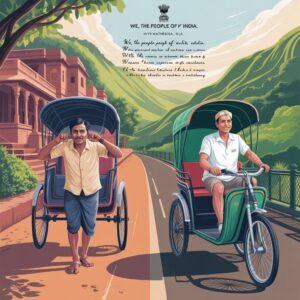Disclaimer
Terms and Conditions of Use Kindly Read This Disclaimer Carefully
By using Legal Services Courkacheri.in’s “lawyer services” YOU AGREE TO BE BOUND BY THESE ADDITIONAL TERMS AND CONDITIONS OF USE. PLEASE READ THEM IN THEIR ENTIRETY.
Legal Services Courkacheri.in’s “lawyer services” (the “Service”) is offered to users of the legalserviceCourkacheri.in Web site . The Service provides those seeking legal services (“Requestor”) with the opportunity to locate lawyers who subscribe to the Service and are interested in providing legal services to the Requestor (“Subscriber lawyer”). Does not review requests by Requestors or responses by Subscriber lawyer.
User Assumes Responsibility. legalserviceCourkacheri.in does not warrant the validity and accuracy of information submitted by Requestors or Subscriber lawyer. legalserviceCourkacheri.indoes not guarantee the quality of any work product by Subscriber Lawyer.
Disclaimer of Lawyer-Client Relationship and Legal Representation. Use of this Service is not intended to and does not create an Lawyer-client relationship between a Subscriber Lawyer and any Requestors. That must be done outside the scope of this Service. The Service offers no legal advice, recommendations, endorsements, or legal representation of any sort. The Service merely offers Requestors a forum through which they may review a limited choice of legal counsel. Each Requestor is solely responsible for making his, her or its own selection of counsel. The Service does not receive any portion of any legal fees or costs charged by any Subscriber Lawyer or Subscriber Lawyer’s law firm. Any fee arrangements and legal services are strictly between the Requestor and their Subscriber Lawyer and do not involve legalserviceCourkacheri.in in any way.
Avoid Disclosure of Confidential Information. Because of the nature of the World Wide Web any and all information provided through this Service is subject to interception by third parties. By continuing to use this Service you hereby acknowledge that disclosure of electronic communications sent through the Service may occur. Therefore, Requestors should avoid disclosing any privileged and/or specific information regarding matters for which legal representation is sought. Specific information would include, by way of example only, names of persons, businesses, and facts that would readily identify the parties involved in the legal issue or dispute. Requestor should describe their issue or dispute in the general terms only. Specific information should only be revealed after the Requestor has selected an attorney and made contact outside the Service (e.g. via telephone or appointment). Subscriber Lawyer using the Service should refrain from asking any Requestor to reveal any specific or confidential information through the Service.
Sole discretion with Requestor and Subscriber Lawyer. Requestor shall have sole discretion whether to contact any Subscriber Attorney who responds to a request. Nothing in this Service is intended or should be interpreted as directing a Requestor in the selection of an Lawyer or limiting the ability of an attorney to use his or her own judgment in the practice of law.
Conflicts Checks. Requestor understands that a Subscriber Lawyer will not be able to and will not perform a check for conflicts of interest between the Requestor and other clients of the Subscriber Lawyer prior to responding to a request. Conflict checks require Requestor to provide their name and contact information and the identity of any affiliated entities, opposing individuals and entities, and such other information as an attorney may require. Conflict checks by Subscriber Lawyer who obtain information from Requestors through this Service are not possible since submissions by a Requestor to the Subscriber Attorney are anonymous and the description of the matter by the Requestor is required to be general in nature
.
Release. Requestors and Subscriber Lawyer hereby release, acquit and forever discharge legalserviceCourkacheri.in, from any and all claims, demands, losses, injuries, liability, or damages of any kind and nature, whether known or unknown, suspected or unsuspected, disclosed or undisclosed, arising out of or in any way connected with the Service, any disclosure resulting from your use of the Service, any conflict of interest, ethical violation, or any alleged malpractice arising out of any Requestors use of the Service in locating a Subscriber Lawyer

